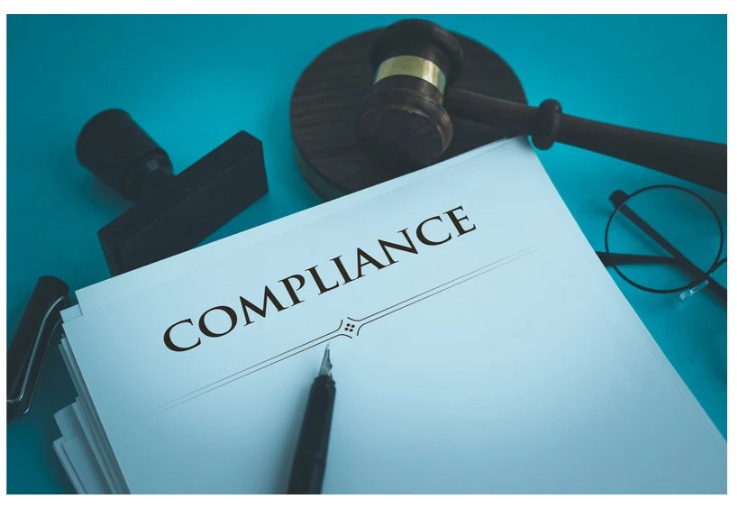
CCPA vs. GDPR Explained: A Comprehensive Comparison
Over the past few years, there has been a significant increase in data privacy regulations across the globe. Two of the most significant ones are the California Consumer Privacy Act (CCPA) and the General Data Protection Regulation (GDPR) in the European Union. While both aim to protect consumer data privacy, they have some key differences. In this article, we will explore and compare the CCPA and GDPR to help you understand their similarities, differences, and implications for businesses.
What is CCPA?
The California Consumer Privacy Act (CCPA) is a comprehensive privacy law that came into effect on January 1, 2020. It grants California consumers certain rights, such as the right to know what personal information is being collected, the right to opt out of the sale of personal information, and the right to request deletion of personal information.
Key provisions of CCPA include:
- Applicability: The CCPA applies to businesses that meet certain thresholds, such as having an annual gross revenue of over $25 million, collecting personal information of 50,000 or more California residents, households, or devices, or deriving at least 50% of revenue from selling personal information.
- Consumer Rights: The CCPA grants California consumers the right to access their personal information, the right to opt out of the sale of their personal information, the right to request deletion of their personal information, and the right to equal service and price even if they exercise their privacy rights.
- Notice and Transparency: Businesses covered by the CCPA must provide clear and conspicuous notices of the categories of personal information collected, the purposes for collection, and the third parties with whom the information is shared.
- Data Security: The CCPA requires businesses to implement reasonable security measures to protect consumer data from unauthorized access, use, or disclosure.
What is GDPR?
The General Data Protection Regulation (GDPR) is a regulation enacted by the European Union (EU) in May 2018. It is designed to protect the personal data of EU citizens and residents and applies not only to businesses within the EU but also to those outside the EU that process the data of EU citizens.
Key provisions of GDPR include:
- Territorial Scope: The GDPR applies to the processing of personal data of individuals in the EU, regardless of whether the processing takes place within the EU. It also applies to businesses outside the EU that offer goods or services to individuals in the EU or monitor their behavior.
- Lawful Basis for Processing: The GDPR requires businesses to have a lawful basis for processing personal data. Lawful bases include the necessity of processing for the performance of a contract, compliance with a legal obligation, legitimate interests pursued by the data controller, and consent.
- Data Subject Rights: Individuals under GDPR have various rights, including the right to access their personal data, the right to rectification, the right to erasure, the right to restriction of processing, the right to data portability, and the right to object to processing.
- Data Protection Officer (DPO): Some businesses are required to appoint a Data Protection Officer who oversees data protection and privacy matters within the organization.
Similarities between CCPA and GDPR
- Consumer Rights: Both the CCPA and GDPR prioritize the protection of consumer rights. Both regulations give individuals the right to access their personal information and the right to request deletion of their personal data under certain circumstances.
- Transparency: Both the CCPA and GDPR emphasize the need for businesses to be transparent about their data collection and processing practices. They require businesses to provide individuals with clear and concise notices regarding the purposes and categories of personal data collected.
- Security Measures: Both regulations require businesses to implement reasonable security measures to protect personal data from unauthorized access, use, or disclosure.
Differences between CCPA and GDPR
- Geographical Scope: While the CCPA applies specifically to businesses operating in California and collecting personal information from California residents, the GDPR has global reach and applies to any business that processes personal data of EU individuals, regardless of their geographic location.
- Consent: Under the GDPR, explicit consent is required for processing personal data, and individuals have the right to withdraw their consent at any time. In contrast, the CCPA focuses more on the right to opt out of the sale of personal information.
- Financial Penalties: In terms of financial penalties, the GDPR imposes substantial fines for non-compliance, with a maximum fine of up to €20 million or 4% of global annual turnover (whichever is higher). In comparison, the CCPA provides for significant but lower penalties, up to $7,500 per intentional violation and $2,500 per unintentional violation.
- Definitions and Terminology: The CCPA and GDPR have different definitions and terminology. For example, GDPR uses terms like data controllers and data processors, while the CCPA refers to businesses and service providers.
Implications for Businesses
If your business operates in California or the EU, or handles personal data of California residents or EU individuals, both the CCPA and GDPR will have implications for your data processing practices. It is important to understand the requirements of each regulation and potentially implement robust data management and privacy policies to ensure compliance.
Businesses should conduct a thorough assessment of their data collection practices, update their privacy policies, and implement procedures to handle consumer requests in accordance with the requirements of both regulations. It may also be advisable to appoint a Data Protection Officer, especially if your business falls within the jurisdiction of the GDPR.
Seeking legal advice or consulting with experts can be beneficial in understanding the nuances of each regulation and tailoring compliance efforts to your specific business needs.
In conclusion, while the CCPA and GDPR share certain objectives, they have distinct differences in terms of scope, consent requirements, and penalties. By understanding the similarities and differences between the two regulations, businesses can better navigate the complex landscape of data privacy and take appropriate measures to ensure compliance with both the CCPA and GDPR.
Contact Cyber Defense Advisors to learn more about our CCPA Compliance solutions.





